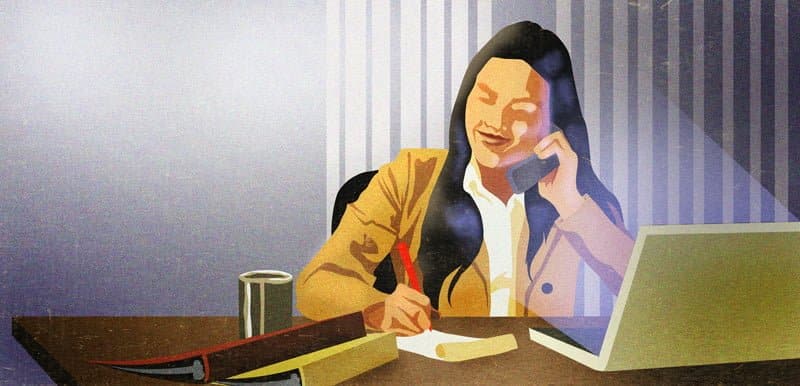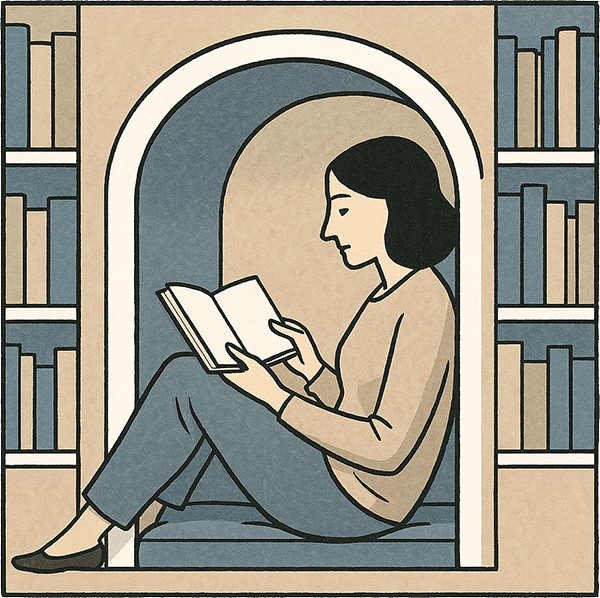Traditional Publishing House Editing Q&A with Laura Chasen
What is the process the large publishers take during the editing phase from start to the press run?
Once a book is acquired and the contract signed, the author and editor will usually go through at least two rounds of edits. They’ll work on macro-elements of story—pacing, plot, character, structure, point of view, voice, world-building, etc. as well as syntactical issues at the line editing stage (same goes for nonfiction). Usually the editor will write a big editorial letter in the first round. In the second round, he/she may make line edits and comments directly on the manuscript.
This process varies a bit from editor to editor. Once both parties feel the manuscript is ready, the editor will transmit to the production department—this is where they get into that nitty-gritty stuff. The book will be assigned to a particular production editor who looks over the manuscript. They’ll send the manuscript out to a freelance copyeditor who will fact-check and look at grammatical nuances. They’ll also make sure that the book complies with publishing house style (Chicago, MLA, ALA, etc.) The author then has a chance to look over the copyedited manuscript and make changes based on the copyeditor’s queries (The acquisitions editor may weigh in as well.) Then the manuscript is typeset. The author looks it over again at this point to make sure his or her changes have been made. The production editor will then look it over and may send it out to an additional proofreader for another eye. Any queries that the proofreader and production editor have will be sent to the author, and the resolutions incorporated into the manuscript. Usually there are three different iterations of the typeset manuscript before the book goes to press so there’s enormous change that occurs from raw manuscript to published book (lest anyone complain that “editors no longer edit” J).
Do the author and editor talk quite a bit?
Absolutely! It’s a very intimate process. In the beginning, the author and editor usually work through several rounds of revisions. This, of course, involves edits, but there’s also a lot of back and forth via emails and phone calls. Much of the good work gets done in hashing out ideas together. Once the big editorial work is finished, and the book goes into production, the editor takes on the role of a project manager—the “hub of the wheel,” so to speak. The editor becomes the “in-house champion” of the book, making sure it gets the attention it deserves. He or she liaises with the marketing, production, sales, and art departments to package and sell the book. During this whole process, the editor is the primary point of contact between the author and his/her agent, and these other departments. What many writers don’t know at the outset is that the writer is an integral part of marketing and selling their book so it’s very important that there be regular communication during the entire process—from editing, to production, to marketing, to getting that thing on the shelf.
What are the different kinds of edits? (Line, content and others)
Each editor handles the process a little differently, but generally speaking, there are three primary kinds of edits and they usually happen in the following order:
Content Edit: This is when the editor hones in on macro-elements of the story, like plot, pacing, character, setting, voice, and repetitive issues in syntax. Often, the editor will write an overarching editorial letter as a separate document in this stage.
Line Edit: This is what we like to call “surgery,” in the editorial world. It’s when an editor makes changes at the line level to the language of the story. The number of changes is entirely dependent on the manuscript—some require heavy line edits, and some do not. (So polish if you are adverse to that red pen.)
Copyedit: This when we look at the very granular elements of grammar, fact check, and align the manuscript with “house style.” Usually the person doing copyediting is different from the person who does content and line editing.
If the author and the editor are on an impasse for how to change content what happens?
Key word: Compromise. Writing is a subjective art and it’s important to acknowledge that no two people will agree on every element of a book. There may be key points that an editor wants to see changed, such as a different ending or re-shaping a particular character.
But often those larger editorial notes are discussed during the acquisition process so expectations are clear by the time a contract is in place. If an editor feels something is necessary to strengthen the story or the sale-ability of the book, they’ll usually say so. For smaller points, there’s often a give and take.
Most good editors are also good human beings. They understand the time and passion that writers put into their books, and certainly don’t want to push them in a direction that makes them uncomfortable. In very exceptional cases, books will be canceled if editor and writer can’t come to an agreement, but that doesn’t happen often.
How does a traditional publishing house match an editor to a book?
This doesn’t work how you would assume. Literary agents usually contact acquisitions editors directly about their clients’ manuscripts. Publishing is a business of relationships. Agents spend a lot of time getting to know editors and their particular tastes; that’s part of the role of the agent. So when they prepare a manuscript for submission, they spend a lot of time thinking about which editors would like a particular book. As with any reader, editors have genres, and sub-genres within those, that they specialize in. It’s important for agents to target the right editor who will fall in love with a book. On some occasions, an agent may call the publisher or editor-in-chief of an imprint and ask which editor(s) may like a particular manuscript.
How do I get my manuscript to an editor at a publishing house?
This is key. Acquisitions editors at publishing houses rarely look at manuscripts that are not submitted via a literary agent. Very rarely. Do not try sending your manuscript directly to a publishing house. It’s a giant waste of time. It will likely sit in a slush pile that gets reviewed by college interns once or twice a year. This isn’t out of cruelty. There simply isn’t time to read everything, and editors know that the better quality books come in via agents. So don’t waste their time. Get an agent. It’s also good for you. There’s a ton of information online about querying agents. Do your research. Read everything there is and make a targeted list of agents who represent books like yours. And write a killer query letter. Once you think it’s ready, have at least 2-3 trusted (writing) people look at it before you query. You want something polished that grabs agents’ attention.
If an author is curious on if their book is good enough for an agent to pick up what would you do to test the waters?
Beta readers and writing groups are invaluable resources. There are many writing groups that form online, or you can seek out an individual critique partner. There may also be some groups in your community that you can join. Ask your local booksellers. They are usually privy to the ins and outs of aspiring writers within the community and may be able to help point you toward a wonderful critique partner or writing group. If you know some savvy readers whose opinions you trust, ask them if they’ll do a beta read of your manuscript. This isn’t an in-depth read like you’d get from a professional editor, but rather a litmus test for pacing, cohesiveness, and general interest from a smart reader. Pick people whose opinions you trust and who you know will be honest with their feedback. If you’re at the stage where you feel like you could use some in-depth revision, but need an outside/expert opinion to push you in the right direction, you may consider hiring a freelance editor. Freelancers can give detailed and constructive feedback on all elements of a book, as well as provide line editing. The goal is to attain actionable feedback so you can do a big revision before submitting to agents. Often it’s helpful to use a freelancer after you’ve gotten one or two beta reads so you have a sense of the kind of edits that you’re seeking.
About Laura Chasen
Laura Chasen is a freelance book editor who recently relocated to Los Angeles from New York City. Laura spent six years as an editor at St. Martin’s Press, where she worked on a range of wonderful books — from literary fiction to young adult to upmarket women’s fiction, current affairs, memoir, science, and parenting.
Her interests are varied, but she is particularly drawn to immigrant stories, international and school settings, family sagas, and anything to do with the dance world. Laura has edited many acclaimed books in her career, including an Editor’s Buzz Panel pick at Book Expo of America, several New York Times Book Review “Editor’s Choice” books, and numerous “Best Books of the Year,” in outlets like the Miami Herald, Bustle, Vanity Fair, Harper’s Bazaar, and Redbook among others. She is a proud graduate of Barnard College (BA in English and dance) and Georgetown University (MA in English), and a mentor for WriteGirl LA.




